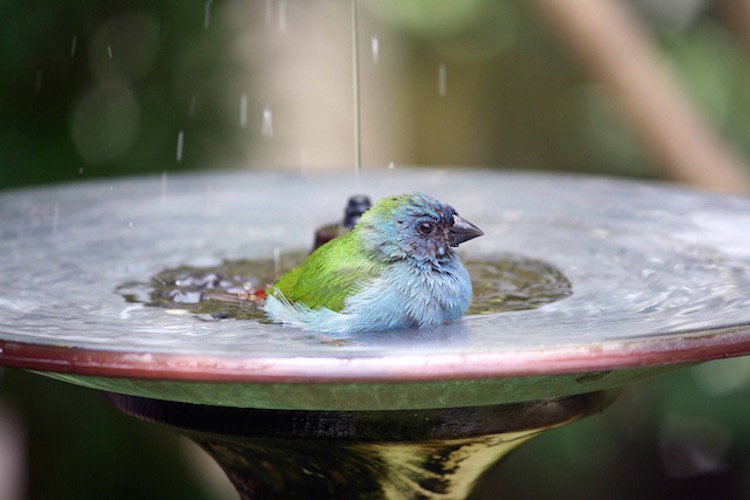According to this study, people living in neighborhoods with more birds, shrubs, and trees are less likely to suffer from depression, anxiety and stress.
The study conducted at the University of Exeter, involving hundreds of people, found benefits for mental health of being able to see birds, shrubs and trees around the home, whether people lived in urban or more leafy suburban neighborhoods.
RELATED: Simple Checklist Leads to 82% Drop in Mental Health Patient Suicides
After conducting extensive surveys of the number of birds in the morning and afternoon in Milton Keynes, Bedford, and Luton, the study found that lower levels of depression, anxiety and stress were associated with the number of birds people could see in the afternoon. The academics studied afternoon bird numbers – which tend to be lower than birds generally seen in the morning – because are more in keeping with the number of birds that people are likely to see in their neighborhood on a daily basis.
In the study, common types of birds including blackbirds, robins, blue tits and crows were seen. But the study did not find a relationship between the species of birds and mental health, but rather the number of birds they could see from their windows, in the garden or in their neighborhood.
Previous studies have found that the ability of most people to identify different species is low, suggesting that for most people it is interacting with birds, not just specific birds, that provides well-being.
MORE: Elderly Couple Share Their Farm With Vets Suffering From PTSD
University of Exeter research fellow Dr. Daniel Cox, who led the study, said: “This study starts to unpick the role that some key components of nature play for our mental well-being.
“Birds around the home, and nature in general, show great promise in preventative health care, making cities healthier, happier places to live.”
The positive association between birds, shrubs and trees and better mental health applied, even after controlling for variation in neighborhood deprivation, household income, age and a wide range of other socio-demographic factors.
(Source: University of Exeter) – Photo by Andrea O’Connell
Fly This Story Over To Your Friends: Click To Share





















I’m the local volunteer barista for birds around my desert home–see and here them on NPR in Tucson https://news.azpm.org/p/news-topical-sci/2018/1/11/122294-the-art-of-paying-attention-gila-woodpecker/
Hello – the image you are using in this story is my image. You did not ask my permission. Please respond as to how you intend to rectify this issue. Sincerely, Andrea O’Connell
I am always delighted when my images are used. I would be so if that photo were mine. If you don’t want them shared with the world, then slap a copyright across it or just add one with an url at the bottom, so people can contact you. By the way it is a capture, and sweet. Let it go.
I love birdwatching and I love nature. The fact that anyone spent time and effort for such a study is ridiculous and I wonder about their mental health!